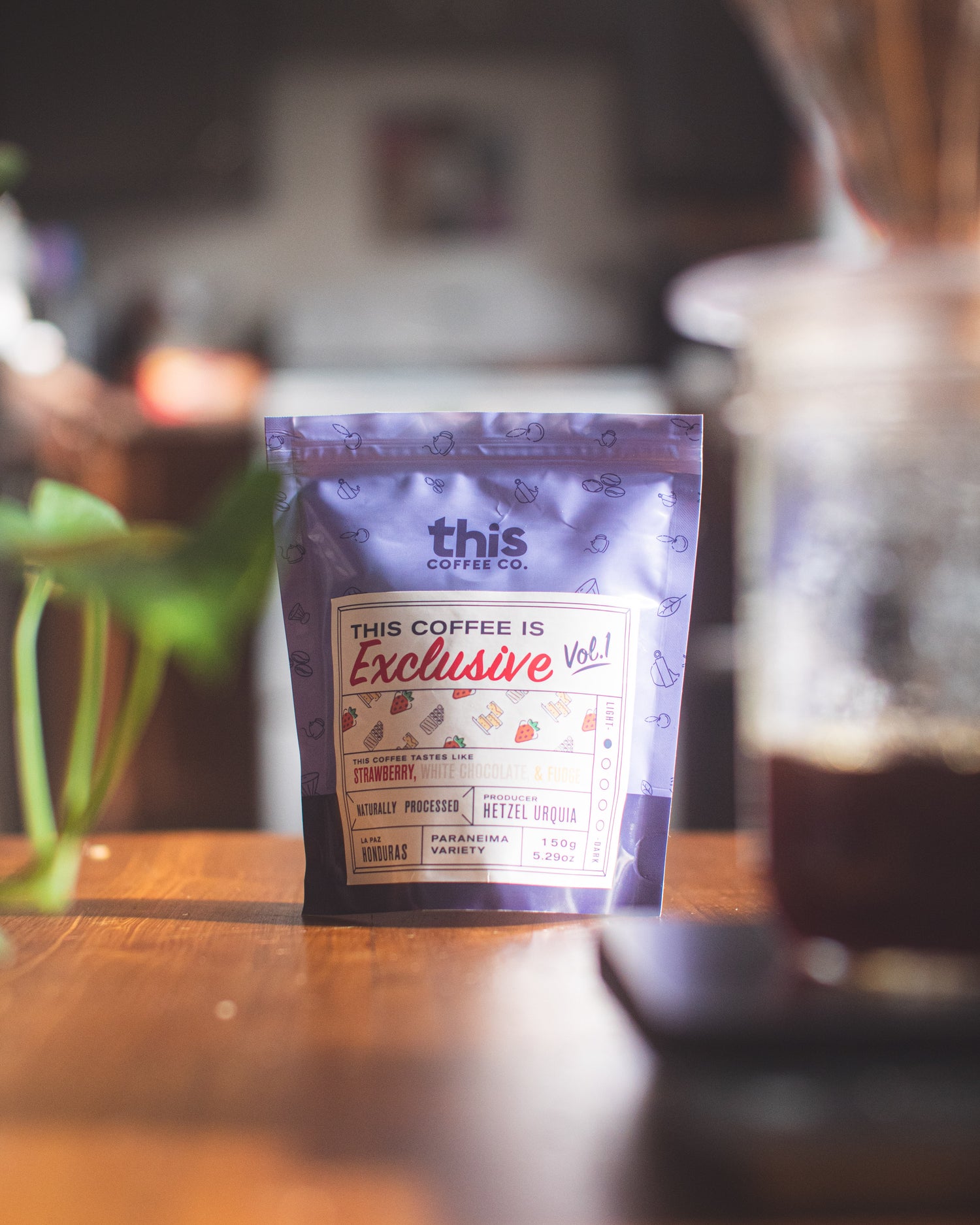About Us

This Coffee Company’s mission is to expand the reach of specialty coffee.
How?
This Coffee Co. is bringing interesting, exclusive lots of coffee to specialty coffee nerds. Supporting producers who are moving to specialty, or trying something new or innovative.
And?
This Coffee Co. is bringing higher grade, specialty coffees to the grocery aisle, cafes and restaurants. Consistent, straightforward, easy to understand, and super delicious coffees. Let’s break down barriers for drinking specialty coffee.
The Team:

Brought to you by the team behind The Roasters Pack, This Coffee Co., is our opportunity to do more.
We care a lot about coffee. It’s how we start our day, it powers us and, of course, it’s incredibly delicious.
We want coffee to be around for a long, long time. But believe it or not, that’s actually something in question.
Global warming and the economic viability of growing coffee are all putting our much-loved beverage in jeopardy. Can you imagine a world without coffee?
We think there are a lot of amazing coffee roasters here in Canada. The entire thesis of The Roasters Pack is to highlight the work that they’re doing. However, we think there’s more that can be done.
Our mission with This Coffee Co is to expand the reach of specialty coffee. Why?
Commodity markets dominate the majority of coffee that is sold—and it’s often sold at a price that isn’t financially viable for the coffee producer.
Farms are actually being abandoned in certain coffee growing countries, as the new generation doesn’t see it as a viable career. Fair trade can be a solution, but it uses the commodity markets as a basis for its green coffee pricing, and as a result, the minimums paid for fair trade won’t always cover the cost of production for the coffee.
Specialty coffee, however, is often traded differently. With the prices not tied to commodity markets, they can be set more appropriately to cover the cost of production.
With more people drinking specialty coffee, it means that growing coffee can actually be viable financially. Selfishly, financial viability can also mean tastier coffees.
If a producer can make money on their coffee crop, they can reinvest some of those profits back into their farm. They can rebuild infrastructure. They can dry coffees properly. They can get to the mill soon after the coffee was picked. They can try planting new varietals.
Hetzel Urquia, the first coffee producer to be released through our exclusive line of coffees (that subscribers to The Roasters Pack got first dibs on), is a perfect example.
It was Hetzel Urquia’s first year attempting to sell internationally at the microlot level.
Urquia previously sold coffee to a famous local organic co-op called COMSA—one that is supported by many fair trade and organic companies around the world. However, the price is set in relationship to the commodity coffee market prices.
As a result, when Hetzel would drop off 100 pounds of cherries at COMSA to be milled, he would receive 280 Lempira (about $11 USD). $11 USD for 100 pounds of cherries.
Farming isn’t the easiest occupation and there are a lot of associated costs: payment to the coffee pickers, three fertilizations per year, three cleanings a year to prevent roya (a fungus that attacks the coffee plant) and gas for his vehicle to transport the coffee (as well as his workers). His perspective on the arrangement with COMSA?
"Nothing comes from this. You practically have to subsidize the farms by another business income. Really, it would be better as a hobby because it's not profitable. It's not profitable at all," shared Urquia.
Hetzel invested in his crop this year and worked with Semilla Coffee, a green exporter out of Montreal, Quebec, to sell his coffee on a microlot level. Part of that investment went to trying something new: planting a new varietal, Paraienama, that performs exceptionally well in the terroir of La Paz, Honduras.
We’re really proud to be able to buy Hetzels’ coffee and we have the honour to be able to buy other amazing producers' coffees - just like Hetzel.
